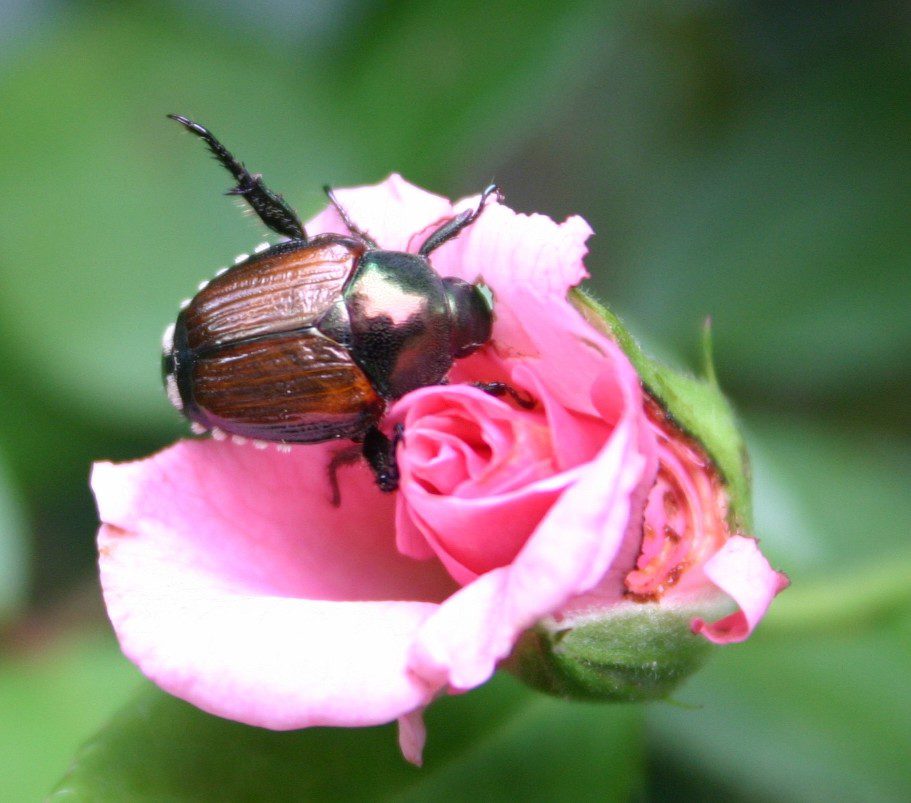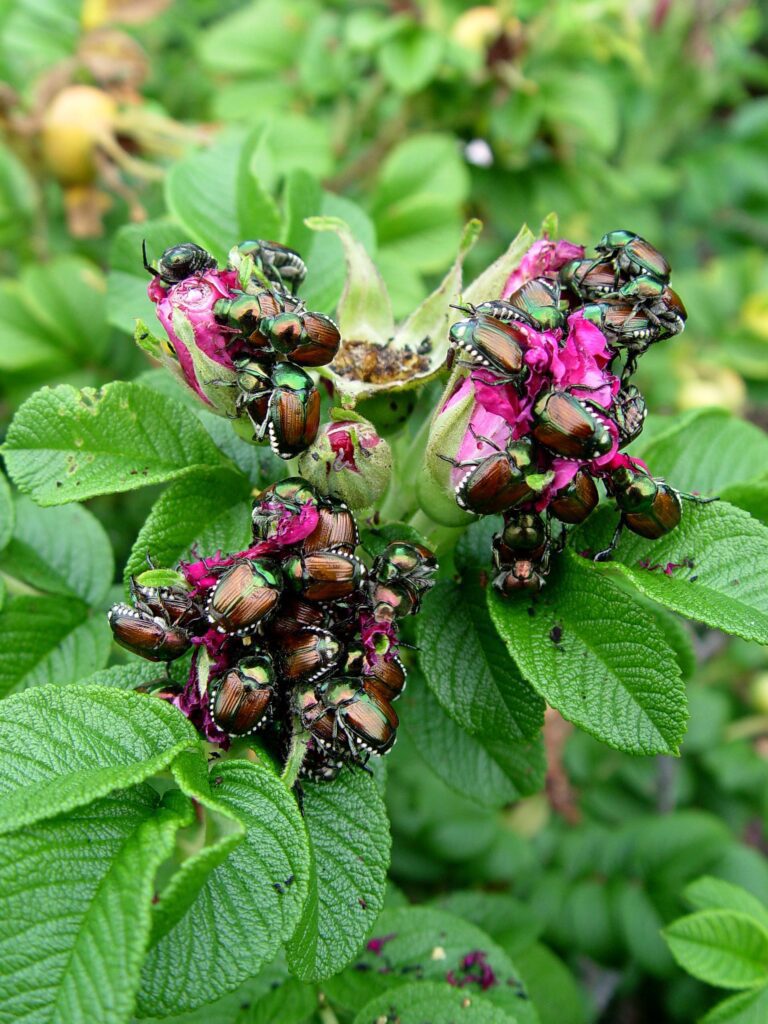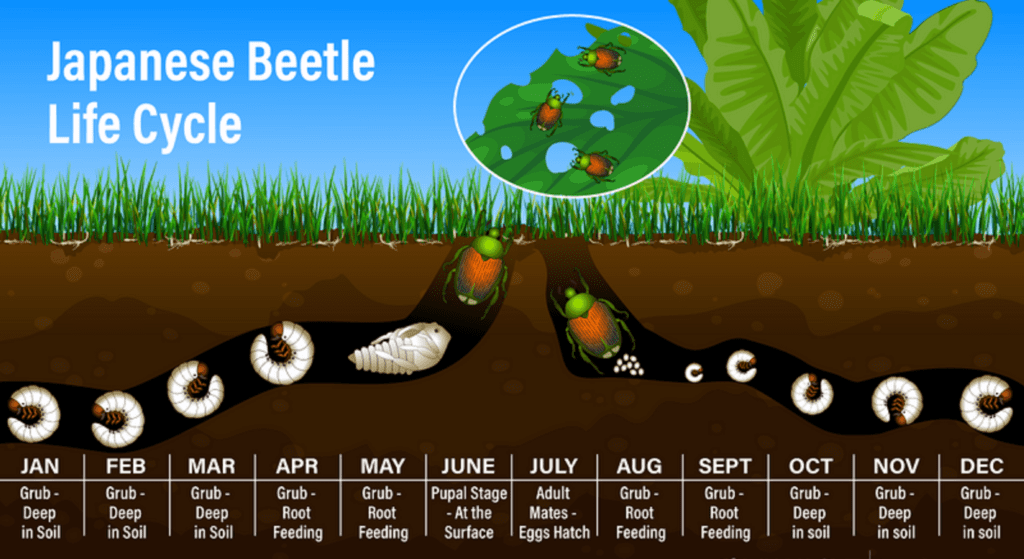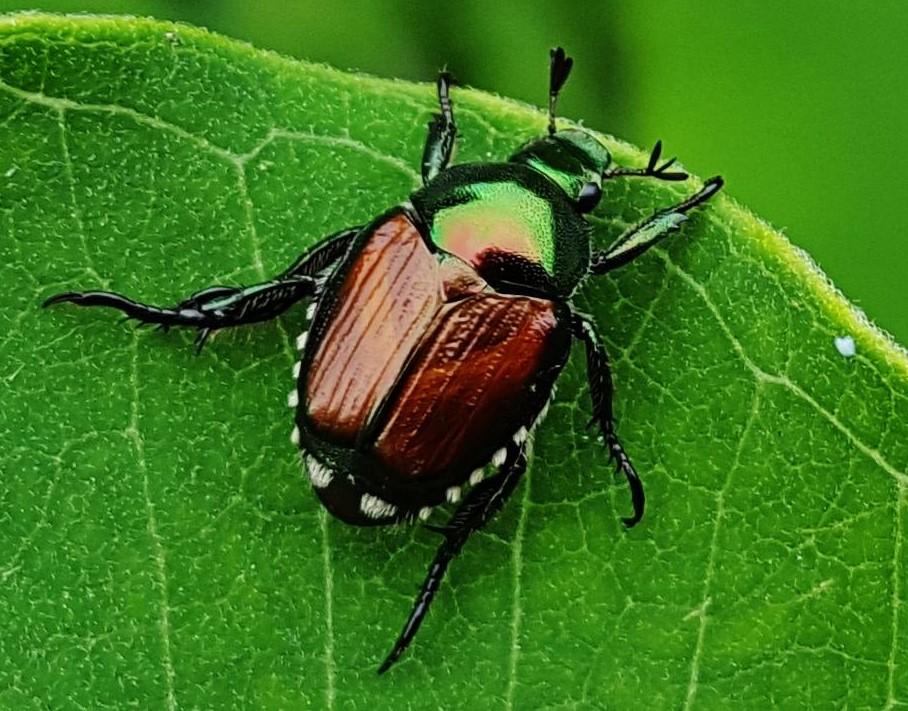By Reder Landscaping | Your Local Lawn & Pest Control Experts
If you’ve spotted patches of grub damage in your lawn this spring, you’re not alone. Despite cooler-than-average temperatures, Mid-Michigan’s wet spring created ideal conditions for grub activity — and now we’re heading into the next phase of the pest cycle: Japanese beetles.
First, they feasted on your lawn from below the surface. Now they’re emerging as Japanese beetles and your plants are next on the menu. These shiny green pests typically appear in late June or early July, and they can quickly become one of the most damaging threats to your landscape.

Why Are Japanese Beetles a Concern in Mid-Michigan?
Even with the chilly start to spring, consistently moist soil helped grubs thrive. As they mature into adult beetles, they begin feeding aggressively on a wide range of plants, shrubs, and trees — often causing widespread damage in a short time.
Here’s what’s at risk in your yard:
- Flowering shrubs like roses and hydrangeas
- Fruit trees, grapevines, and berry bushes
- Linden, elm, and maple trees
- Vegetable gardens — especially beans, corn, and tomatoes
Japanese beetles skeletonize leaves, chewing away the green tissue and leaving just the veins. A small infestation can ruin garden beds and put serious stress on your trees and shrubs.

Signs of a Japanese Beetle Infestation
Watch for these early warning signs:
- Groups of beetles gathered on plants, especially in sunny areas
- Leaves that look lacy, scorched, or thin
- Drooping or discolored foliage
- A sudden increase in bird activity (birds often follow the beetles)
Infestations typically peak from late June through early August here in Mid-Michigan — so now’s the time to keep an eye out.
How to Protect Your Landscape from Japanese Beetles
Here are some of the most effective ways to manage beetles before they get out of control:
Hand Removal
Pick beetles off plants in the early morning and drop them into a bucket of soapy water.
Great for small gardens and helps reduce further mating and egg-laying.
Neem Oil & Organic Sprays
Neem oil interferes with beetle feeding and reproduction — perfect for edible gardens and pollinator-safe landscapes.
Available in ready-to-use bottles at most local hardware stores.
Systemic Insecticides
These treatments are absorbed through the roots and provide longer-term protection.
For best results and environmental safety, professional application is recommended.
Avoid Store-Bought Traps
Traps tend to attract more beetles than they catch. If you use them, place them far from your most valuable plants and gardens.

Plan Ahead with Fall Grub Control
Looking to break the beetle cycle? Late summer or early fall is the ideal time to apply grub control treatments that target the next generation before they overwinter in your soil.
Reder Landscaping offers proven, pollinator-safe grub control solutions designed for Mid-Michigan lawns — keeping your yard healthy from the ground up.
Concerned about beetles or grub damage?
Give us a call — we’re here to help protect your landscape before pests take over.
Why Choose Reder Landscaping for Lawn Pest Control in Mid-Michigan?
- Locally owned and operated in Mid-Michigan
- Over 60 years of experience in professional lawn care and pest management
- Customized plans for grub control, Japanese beetle treatment, and plant protection
- Eco-conscious solutions that are safe for families and pets
We know what it takes to keep Mid-Michigan landscapes healthy and beautiful all year long.
Call Reder Landscaping today for a Japanese beetle inspection and treatment plan (989) 835-8260.
Visit www.rederlandscaing.com to schedule a consultation or get a free quote
Serving Midland, Bay City, Saginaw, Freeland, Auburn, Linwood, Kawkawlin, Hope, Beaverton, Gladwin, Sanford, and the greater Mid-Michigan area.

